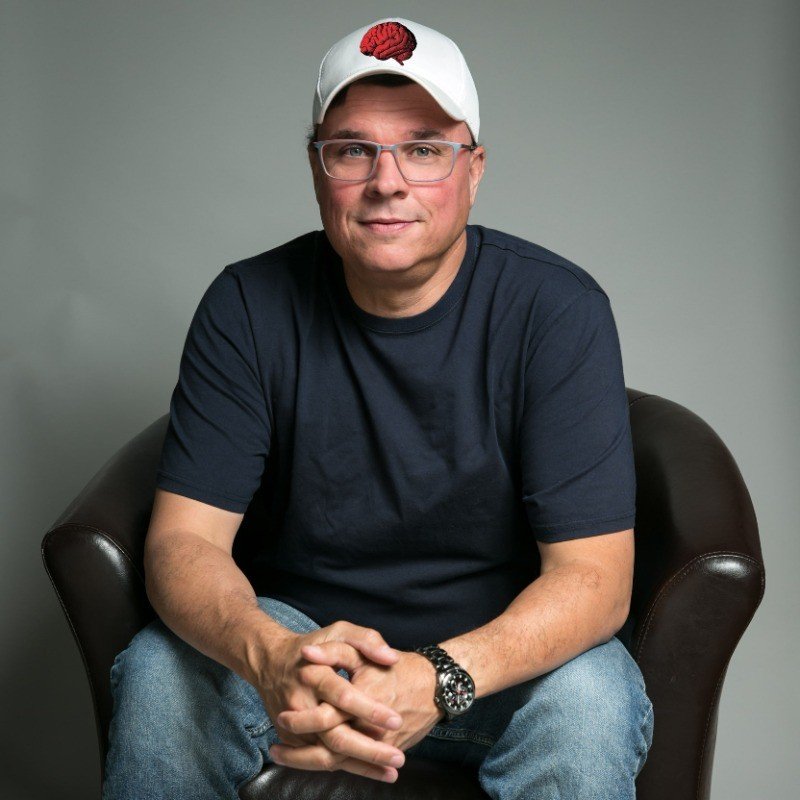Unlocking the ADHD Entrepreneurial Mind: Overcoming Challenges and Thriving
André Brisson, P. Eng., Founder of Tactical Breakthroughs & A Seasoned ADHD Coach
Navigating life with ADHD can feel like a whirlwind of chaos and creativity. For entrepreneurs, the condition often amplifies these challenges but also presents unique strengths. In this episode of the Breakfree Podcast, host David Mansilla speaks with André Brisson, an entrepreneur and advocate for ADHD awareness, about their shared experiences. Together, they uncover strategies to transform ADHD from a potential roadblock into a driving force for success. This blog dives into the key takeaways from their insightful conversation.
Understanding ADHD Beyond the Label
The conversation between David and Andre underscores the need to redefine ADHD, not as a disorder, but as a different way of thinking. Andre explains, "ADHD isn’t a medical condition; it’s a societal condition." This perspective shifts the narrative from treating ADHD as an ailment to embracing it as a unique neurological trait. The analogy of the "hunter in a farmer’s world" perfectly illustrates the disconnect between the ADHD brain and societal expectations, emphasizing the need for a better understanding of this condition.
Another key aspect discussed is time blindness, a trait common in individuals with ADHD. Andre describes it as "living in the now or not now," which complicates long-term planning and goal-setting. This tendency to focus only on the immediate often results in last-minute efforts and difficulties in maintaining structured timelines. However, understanding this trait allows individuals to develop strategies, such as short-term planning and external reminders, to navigate time effectively.
Impulsivity, often viewed as a flaw, can be a strength when understood and channeled correctly. For entrepreneurs, impulsivity drives quick decision-making, innovation, and adaptability in dynamic situations. Andre’s insights shed light on how embracing impulsivity as a natural trait can lead to breakthroughs and success when combined with self-awareness and strategic thinking.
The Power of Environment and Routine
"Control the environment, and you control the symptoms," says Andre. This principle highlights the importance of designing spaces and schedules that cater to the ADHD brain’s unique needs. A well-structured environment can reduce emotional dysregulation and foster productivity. For instance, minimizing distractions and creating dedicated zones for work and relaxation can significantly enhance focus and balance.
Habits and routines play a crucial role in managing ADHD symptoms. Establishing consistent daily practices conserves mental energy and reduces decision fatigue. For Andre, sticking to routines prevents burnout and ensures that essential tasks are completed, even on challenging days. Over time, these habits become automatic, allowing individuals to operate efficiently within their unique frameworks.
Andre’s ADHD Structure Model emphasizes the interplay between environment, habits, and routines. By tailoring these elements to support their needs, individuals with ADHD can create systems that enhance their strengths and minimize disruptions. This structured approach empowers them to thrive in environments traditionally seen as incompatible with their neurological wiring.
ADHD and Emotional Regulation
Emotional dysregulation often accompanies ADHD, creating challenges in personal and professional relationships. David’s story illustrates how unmanaged ADHD nearly cost him his marriage. His struggles with emotional outbursts and impulsive behaviors strained his relationships, highlighting the importance of awareness and proactive management.
Recognizing the impact of emotional dysregulation is the first step toward improvement. David’s journey involved psychoanalysis, faith, and open communication with his wife, which were pivotal in rebuilding trust and understanding. These efforts also provided him with tools to better manage his emotional responses and foster healthier interactions.
Andre emphasizes the importance of self-awareness in addressing emotional challenges. Understanding that ADHD amplifies emotional responses can help individuals respond more effectively to stress and conflict. By cultivating mindfulness and developing coping strategies, they can navigate their emotions with greater clarity and confidence.
Turning ADHD into a Superpower
Despite its challenges, ADHD can be a superpower when understood and managed. The ability to hyperfocus, for example, allows individuals to deeply engage with tasks that align with their interests. This intense focus can lead to high levels of creativity and productivity, making it a valuable asset in entrepreneurial pursuits.
Resilience and creativity are other hallmarks of the ADHD brain. Entrepreneurs like David and Andre leverage their natural adaptability to overcome obstacles and innovate. ADHD’s tendency to think outside the box often leads to unique solutions and opportunities that others might overlook.
Learning to pause and reflect is a critical skill for managing impulsivity. Andre’s "travel fasting" method, where he takes deliberate breaks from frequent travel, exemplifies how intentional pauses can lead to greater clarity and balance. By harnessing their strengths and addressing their challenges, individuals with ADHD can unlock their full potential.
Breaking the Stigma
Both David and Andre advocate for a broader understanding of ADHD, especially in adults. They emphasize the need to challenge outdated stereotypes and foster a more inclusive perspective. Open discussions about ADHD can help normalize the condition and encourage others to seek support without fear of judgment.
Overcoming shame is a critical step in embracing an ADHD diagnosis. David’s initial fear of being labeled as "sick" reflects the societal stigma surrounding mental health. By reframing ADHD as a "brain thing" rather than a flaw, individuals can shift their focus from self-blame to self-growth.
Seeking support from professionals who understand adult ADHD is vital. David’s experience highlights the importance of tailored guidance and a supportive community. By sharing their stories and advocating for awareness, individuals like David and Andre inspire others to embrace their differences and thrive.
Conclusion
ADHD is not a life sentence; it’s a call to understand and harness your brain’s unique wiring. David and Andre’s stories highlight that success and fulfillment are possible with the right strategies and support systems. By focusing on strengths, building routines, and fostering self-awareness, ADHD can become a superpower that fuels innovation and resilience.
Written by Dhan Ababa
“It’s not about fixing ADHD; it’s about understanding your brain and creating an environment where you can thrive. That’s when your superpower truly emerges.”
🎧 Listen to the Podcast 🎧


